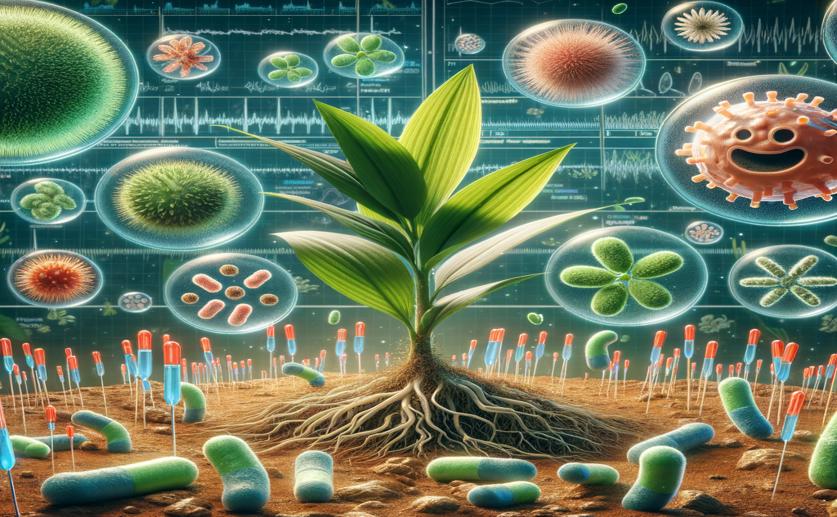
Using Friendly Bacteria to Combat Harmful Plant Diseases
Jim Crocker
14th June, 2024

Image Source: Natural Science News, 2024
Key Findings
- Researchers in Iran explored using beneficial bacteria to manage citrus canker, a major threat to citrus crops
- Bacillus strains, particularly B. amyloliquefaciens, significantly reduced citrus canker symptoms by inhibiting the pathogen's growth
- This biological control method offers a sustainable and environmentally friendly alternative to chemical pesticides
AgricultureBiotechPlant Science
References
Main Study
1) Biocontrol potential of epiphytic bacteria against Xanthomonas citri pathotypes A and A*
Published 13th June, 2024
https://doi.org/10.1186/s41938-024-00795-3
Related Studies
2) Interactions of Bacillus spp. and plants--with special reference to induced systemic resistance (ISR).
3) DNA polymorphisms and biocontrol of Bacillus antagonistic to citrus bacterial canker with indication of the interference of phyllosphere biofilms.
4) Antibacterial activity of antagonistic bacterium Bacillus subtilis DJM-51 against phytopathogenic Clavibacter michiganense subsp. michiganense ATCC 7429 in vitro.



 8th June, 2024 | Jim Crocker
8th June, 2024 | Jim Crocker